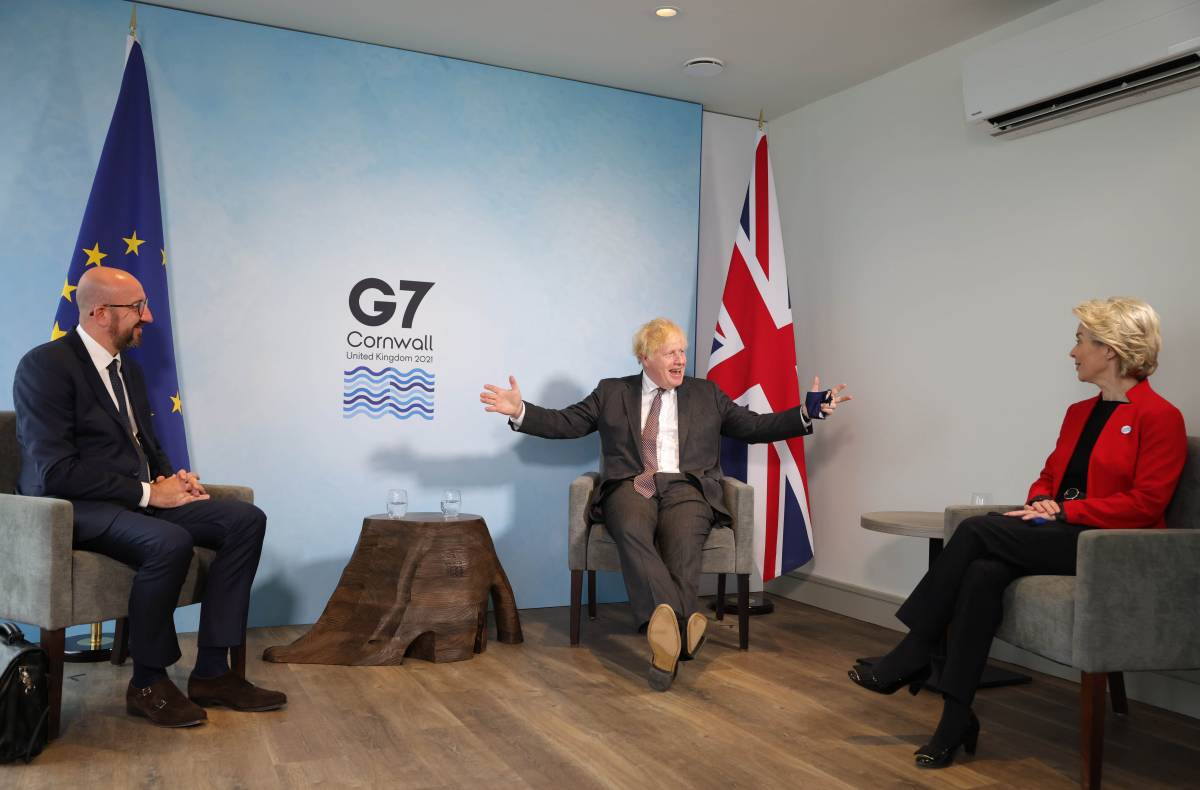On Sunday, Indian Prime Minister Narendra Modi said that Open societies are particularly vulnerable to disinformation and cyber-attacks…reports Asian Lite News.
European Commission President Ursula von der Leyen said the G7 nations have agreed to step up cooperation and information sharing on issues related to cybercrime.
“We need a robust joint response to cybercrimes, especially ransomware. We agreed to step up information sharing and to coordinate more closely on police investigations and diplomatic measures,” von der Leyen, who is attending the ongoing G7 summit in the United Kingdom, wrote on her Twitter account.
Von der Leyen stated that Europe is “fighting disinformation every day,” and added that efforts would be strengthened to tackle “foreign interference.”
On Sunday, Indian Prime Minister Narendra Modi said that Open societies are particularly vulnerable to disinformation and cyber-attacks.
Addressing an Outreach Session of the G7 Summit virtually, he shared the concern expressed by several leaders and stressed the need to ensure that cyberspace remains an avenue for advancing democratic values and not of subverting it.
On the second day of the Outreach Sessions of the G7 Summit, Prime Minister Modi took part in two sessions titled ‘Building Back Together—Open Societies and Economies’ and ‘Building Back Greener: Climate and Nature’.
Invited as a Lead Speaker in the session on Open Societies, PM Modi recalled that democracy and freedom were a part of India’s civilizational ethos, said the Prime Minister’s Office (PMO).
Highlighting the non-democratic and unequal nature of global governance institutions, PM Modi called for the reform of the multilateral system as the best signal of commitment to the cause of Open Societies.
Meanwhile, the ratio of cybercrimes in Europe has doubled in the past year as the COVID-19 pandemic pushed the lives of people indoors and online, as per the new figures revealed by the crime monitoring body.
Nick Paton Walsh in CNN said that as per the European Union Agency for Cybersecurity, ENISA, significant cyberattacks against critical targets in Europe have doubled in 2020. There were 304 significant, malicious attacks against “critical sectors” in 2020, more than double the 146 recorded the year before.
The agency also reported a 47 per cent rise in attacks on hospitals and health care networks in the same period, as the same criminal networks sought to cash in on the pandemic’s most vital services.

The figures show the growing global impact of cyberattacks, often in the form of ransomware, which has recently caused havoc in the United States when the Darkside group targeted the Colonial Pipeline network causing gas station queues because of a fear of shortages.
The COVID-19 pandemic meant “a lot of services were provided online and that happened in a kind of rush, so security was as an afterthought,” said Apostolos Malatras, team leader for knowledge and information at ENISA. At the same time people stayed indoors and had time to explore vulnerabilities in systems and critical infrastructure, he added.
Surveys of businesses by the British security firm Sophos also concluded that the average cost of a ransomware attack has doubled in the year to date. The survey estimated the cost for 2020 at 761,106 dollars but by this year that figure had leapt to 1.85 million dollars. The cost includes insurance, business lost, cleanup and any ransomware payments.
The rising cost reflects the greater complexity of some attacks, said John Shier, senior security adviser at Sophos, who added that while the number of attacks had dropped, their sophistication had risen. (with inputs from ANI)
ALSO READ-G7 leaders agree on efforts to combat climate crisis
READ MORE-G7 ends up with promise on 870mn jabs

Leave a Reply